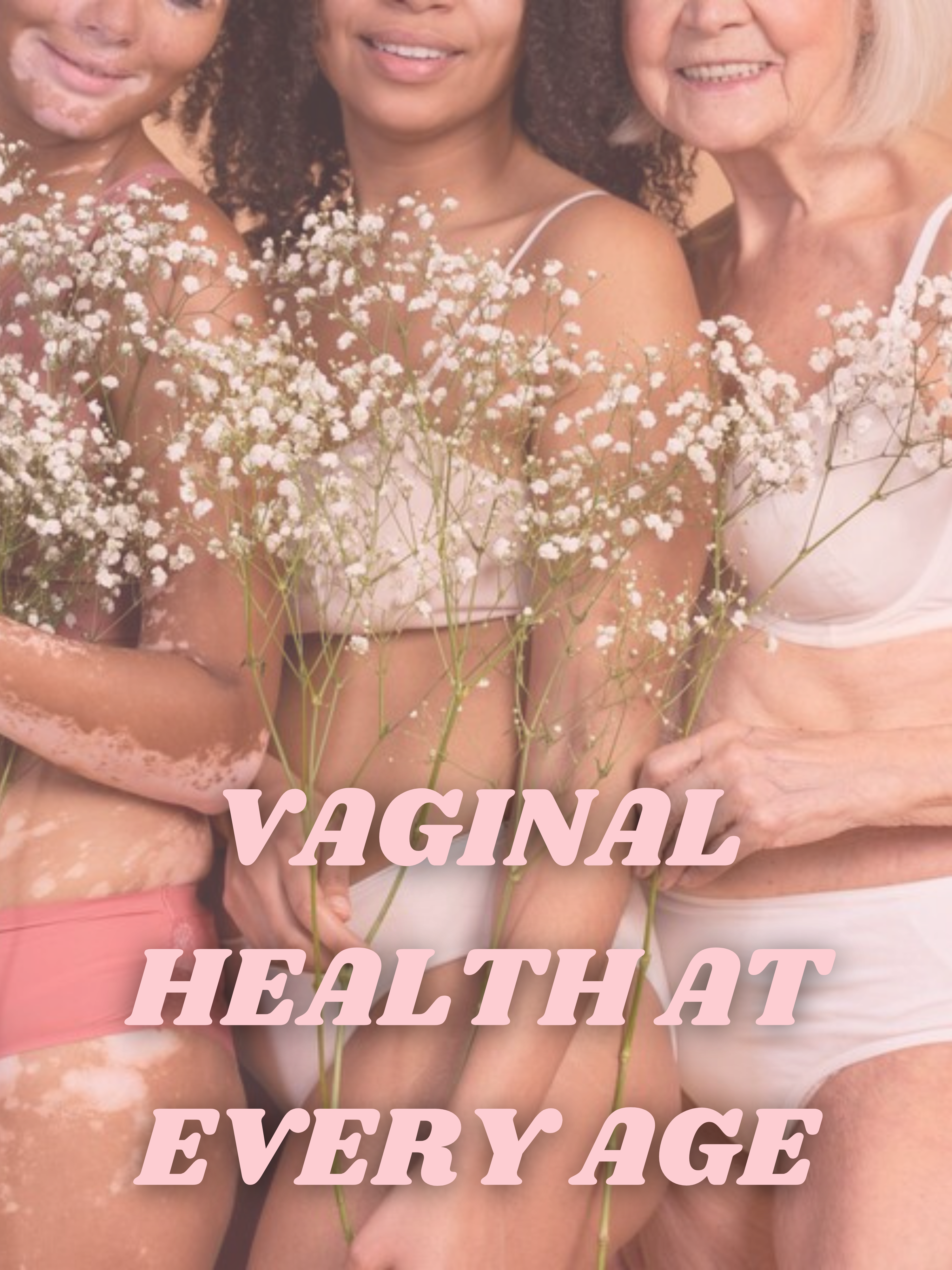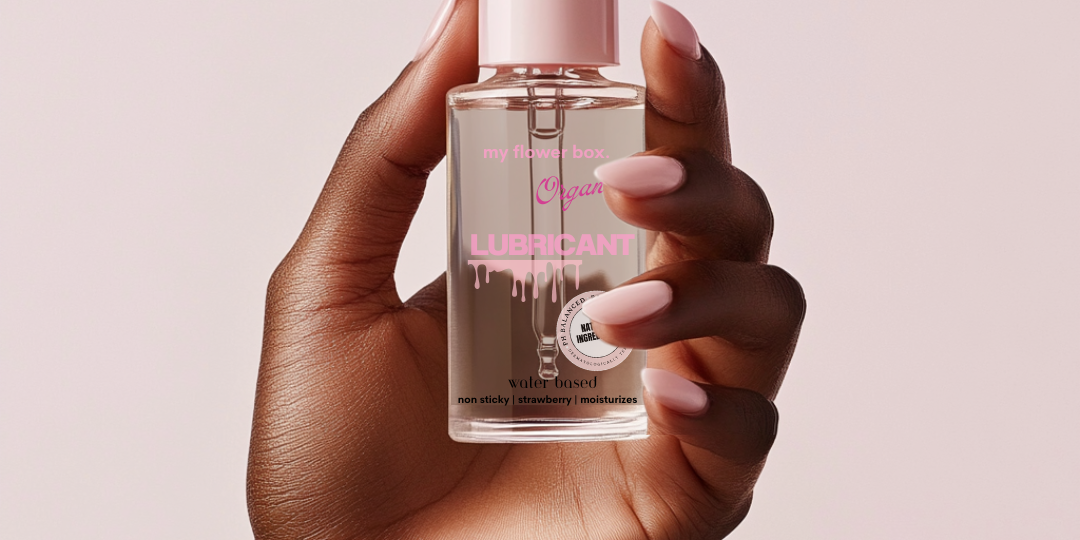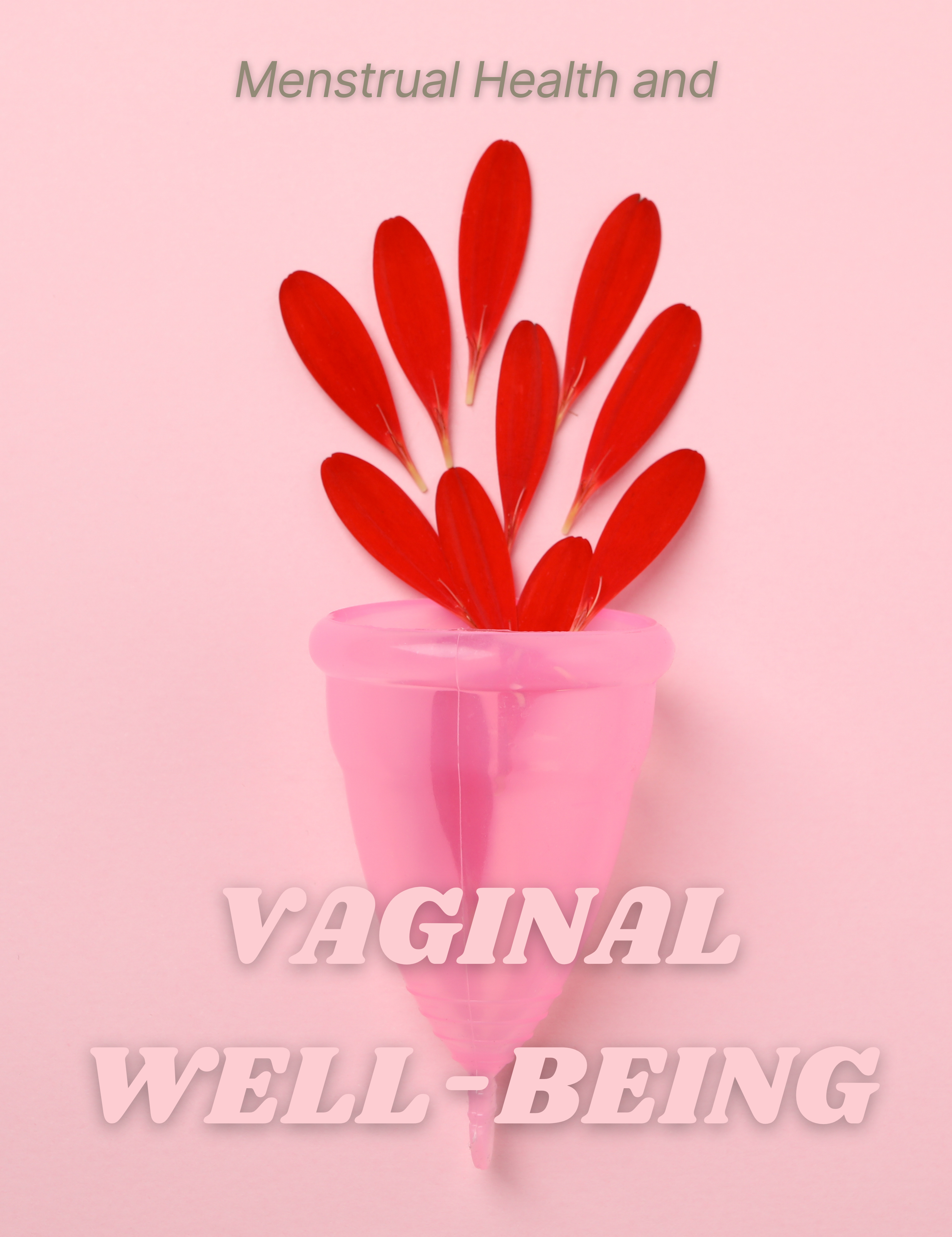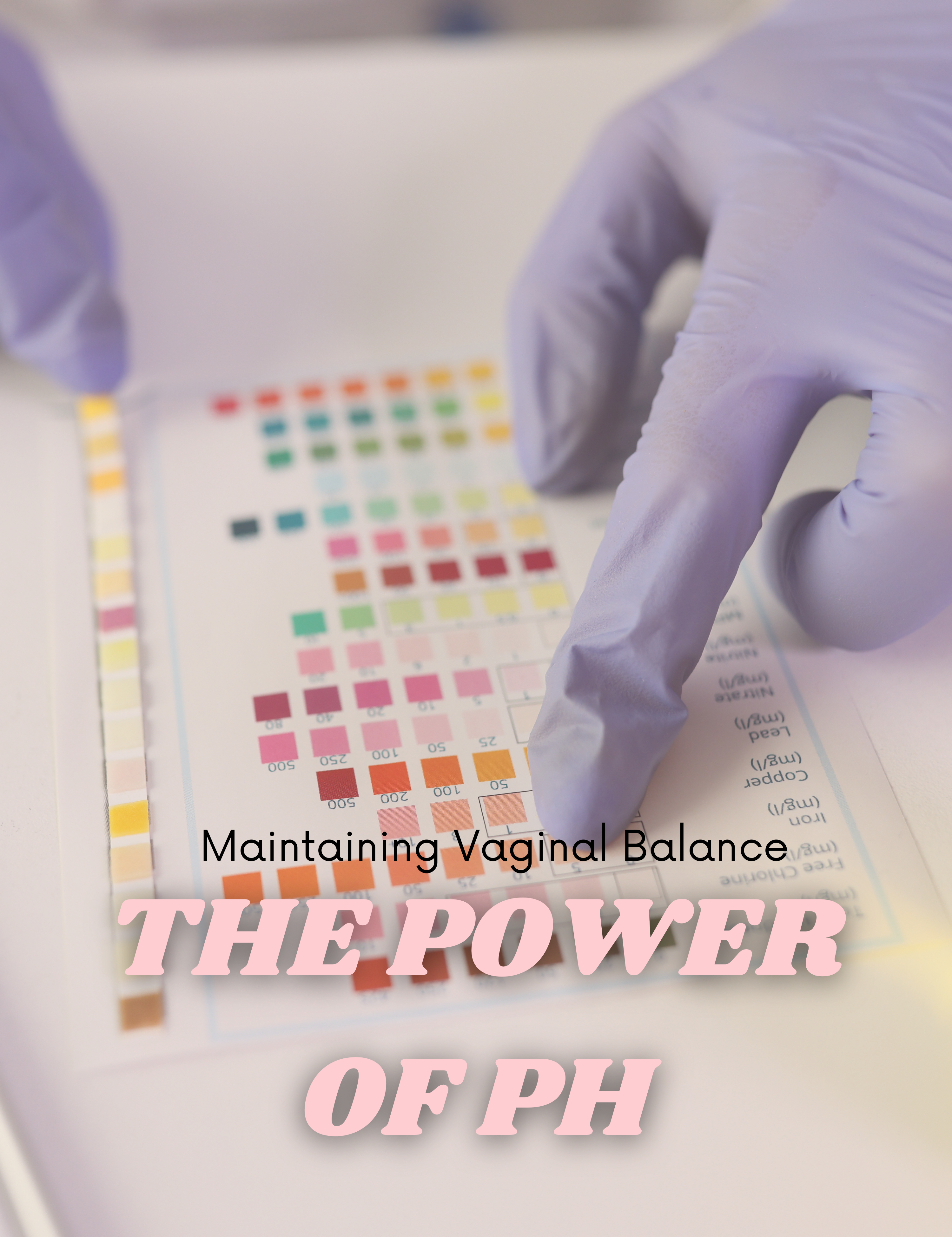Vaginal Health at Every Age: Guidelines for Teens, Adults, and Seniors

Maintaining vaginal health is a crucial aspect of overall well-being for women at every stage of life. From the onset of puberty through the reproductive years to the challenges faced in the golden years, understanding the unique needs of each age group is essential. In this article, we will delve into age-specific guidelines for teens, adults, and seniors, offering insights into hormonal changes, hygiene practices, and overall well-being.
Vaginal Health in Teens
During adolescence, teenagers experience a myriad of changes, both physical and hormonal. Understanding and addressing these changes is crucial for maintaining optimal vaginal health in teens.
Puberty and Hormonal Changes
Puberty marks the beginning of significant hormonal changes, impacting various aspects of a teenager's life, including vaginal health. Understanding these shifts is essential for maintaining a healthy and happy adolescence.
- During puberty, the body undergoes hormonal changes, leading to the development of secondary sexual characteristics. Estrogen levels rise, impacting the vaginal environment. This hormonal surge may result in an increase in vaginal discharge and the onset of menstrual cycles.
- Educating teenage girls about menstrual cycles is crucial. Providing information on cycle length, and menstrual hygiene products, and addressing common concerns can empower them to navigate this transformative period with confidence.
Proper Hygiene Practices for Teens
Maintaining proper hygiene is fundamental for teens to ensure a healthy vaginal environment. Here are some guidelines for teenage girls:
-
Guidelines for Maintaining Cleanliness
- Encourage regular bathing and emphasize the importance of gentle, fragrance-free soaps. Teach proper wiping techniques from front to back to prevent the spread of bacteria.
-
Choosing Suitable Feminine Products for Teens
- Introduce teens to age-appropriate feminine hygiene products. Discuss the differences between pads and tampons, highlighting the importance of changing them regularly to prevent infections.
-
Addressing Common Concerns for Teenage Girls
- Open conversations about common concerns, such as vaginal odor, itching, or discharge, are crucial. Assure them that seeking medical advice is normal and encourages a proactive approach to their health.
Understanding and addressing hormonal changes and practicing proper hygiene are foundational for maintaining optimal vaginal health in teenagers. By providing knowledge and fostering open communication, we empower young girls to navigate this crucial stage of development with confidence and ensure a healthy foundation for their future well-being.
Vaginal Health in Adults
As women transition into adulthood, maintaining optimal vaginal health becomes a key aspect of overall well-being. From menstrual health to intimate relationships, understanding and addressing the unique needs of the adult female body are essential.
Menstrual Health and Reproductive Years
For women in their reproductive years, managing menstrual health is a central component of vaginal well-being.
- Managing Menstrual Cycles Effectively
- Understanding and tracking menstrual cycles is vital for reproductive health. Encourage the use of tracking apps or calendars to monitor cycle length, helping women become more aware of their bodies and facilitating family planning.
- Contraception and Its Impact on Vaginal Health
- Discuss various contraceptive methods with women, highlighting their potential impact on vaginal health. Hormonal contraceptives, for example, can influence vaginal discharge, necessitating informed choices aligned with individual health goals.
- Addressing Sexually Transmitted Infections (STIs)
- Open conversations about safe sex practices are crucial. Promote regular STI screenings, emphasize the importance of protection, and encourage open communication with sexual partners to maintain a safe and healthy sexual environment.
Pregnancy and Postpartum Care
The journey through pregnancy and postpartum recovery brings unique challenges to vaginal health.
- Vaginal Health During Pregnancy
- Pregnancy introduces hormonal changes and increased blood flow, impacting vaginal health. Discuss common concerns such as increased discharge and varicose veins, emphasizing the importance of prenatal care.
- Postpartum Recovery and Care
- After childbirth, focus on postpartum recovery. Address topics such as episiotomy care, pelvic floor exercises, and the gradual return to sexual activity. Encourage open communication with healthcare providers about any concerns during this transformative period.
- Guidelines for Breastfeeding and Vaginal Health
- For breastfeeding mothers, hormonal changes can lead to vaginal dryness. Provide guidance on maintaining comfort, staying hydrated, and seeking professional advice if needed.
Intimate Wellness in Relationships
Maintaining intimate wellness is crucial for adults in relationships. Safe sex practices, effective communication with partners, and understanding each other's needs contribute to a healthy sexual relationship.
- Safe Sex Practices
- Reiterate the importance of safe sex practices, including the use of condoms and regular STI screenings. Addressing concerns promptly ensures a supportive and safe sexual environment.
- Communication with Partners About Vaginal Health
- Encourage open communication with partners regarding vaginal health. Discussing concerns, and preferences, and seeking mutual understanding fosters a supportive and healthy relationship.
Thus, adulthood brings its own set of considerations for maintaining vaginal health. From managing menstrual health to navigating pregnancy and fostering intimate wellness in relationships, addressing these aspects empowers women to take charge of their well-being during this stage of life. Regular check-ups, informed choices, and open communication contribute to a positive and empowered experience of vaginal health in adulthood.
Vaginal Health in Seniors
As women transition into adulthood, maintaining optimal vaginal health becomes a key aspect of overall well-being. From menstrual health to intimate relationships, understanding and addressing the unique needs of the adult female body are essential.
Menstrual Health and Reproductive Years
For women in their reproductive years, managing menstrual health is a central component of vaginal well-being.
- Managing Menstrual Cycles Effectively
- Understanding and tracking menstrual cycles is vital for reproductive health. Encourage the use of tracking apps or calendars to monitor cycle length, helping women become more aware of their bodies and facilitating family planning.
- Contraception and Its Impact on Vaginal Health
- Discuss various contraceptive methods with women, highlighting their potential impact on vaginal health. Hormonal contraceptives, for example, can influence vaginal discharge, necessitating informed choices aligned with individual health goals.
- Addressing Sexually Transmitted Infections (STIs)
- Open conversations about safe sex practices are crucial. Promote regular STI screenings, emphasize the importance of protection, and encourage open communication with sexual partners to maintain a safe and healthy sexual environment.
Pregnancy and Postpartum Care
The journey through pregnancy and postpartum recovery brings unique challenges to vaginal health.
- Vaginal Health During Pregnancy
- Pregnancy introduces hormonal changes and increased blood flow, impacting vaginal health. Discuss common concerns such as increased discharge and varicose veins, emphasizing the importance of prenatal care.
- Postpartum Recovery and Care
- After childbirth, focus on postpartum recovery. Address topics such as episiotomy care, pelvic floor exercises, and the gradual return to sexual activity. Encourage open communication with healthcare providers about any concerns during this transformative period.
- Guidelines for Breastfeeding and Vaginal Health
- For breastfeeding mothers, hormonal changes can lead to vaginal dryness. Provide guidance on maintaining comfort, staying hydrated, and seeking professional advice if needed.
Intimate Wellness in Relationships
Maintaining intimate wellness is crucial for adults in relationships. Safe sex practices, effective communication with partners, and understanding each other's needs contribute to a healthy sexual relationship.
- Safe Sex Practices
- Reiterate the importance of safe sex practices, including the use of condoms and regular STI screenings. Addressing concerns promptly ensures a supportive and safe sexual environment.
- Communication with Partners About Vaginal Health
- Encourage open communication with partners regarding vaginal health. Discussing concerns, and preferences, and seeking mutual understanding fosters a supportive and healthy relationship.
Adulthood brings its own set of considerations for maintaining vaginal health. From managing menstrual health to navigating pregnancy and fostering intimate wellness in relationships, addressing these aspects empowers women to take charge of their well-being during this stage of life. Regular check-ups, informed choices, and open communication contribute to a positive and empowered experience of vaginal health in adulthood.
Common Tips for Vaginal Health at Every Age

Maintaining optimal vaginal health is a lifelong commitment that evolves with each stage of a woman's life. Regardless of age, there are common tips and practices that contribute to overall well-being and ensure a healthy and happy vagina.
Importance of Regular Gynecological Check-ups
Regular gynecological check-ups are a cornerstone of preventive care at every age. These check-ups provide an opportunity for healthcare providers to monitor reproductive health, detect potential issues early, and offer guidance on maintaining overall vaginal well-being.
Recommendations:
- Schedule Regular Check-ups: Aim for an annual gynecological examination, or as recommended by your healthcare provider.
- Communicate Openly: Share any concerns, changes, or discomfort during check-ups to receive timely advice and intervention.
Choosing the Right Products for Each Life Stage
Selecting appropriate feminine hygiene products is crucial for maintaining comfort and preventing infections. The right products can vary based on age, hormonal changes, and specific needs.
Recommendations:
- Consider Age-Specific Products: Tailor your choices to products suitable for your life stage, such as menstrual products, lubricants, or menopause-specific items.
- Prioritize Comfort: Choose products made from hypoallergenic and breathable materials to minimize irritation.
Promoting Open Communication About Vaginal Health
Breaking the taboo around discussing vaginal health is essential for creating a supportive environment. Open communication fosters understanding, encourages proactive health management, and reduces stigma associated with women's reproductive health.
Recommendations:
- Encourage Dialogue: Discuss vaginal health openly with healthcare providers, friends, or family members to share experiences and gather valuable insights.
- Seek Professional Advice: If experiencing unusual symptoms or discomfort, consult with a healthcare professional without hesitation.
Additional Tips for Vaginal Health at Every Age
- Practice Good Hygiene
Maintaining proper hygiene is fundamental for preventing infections and promoting overall vaginal health.
Recommendations:
- Gentle Cleansing: Use mild, fragrance-free soaps to clean the external genital area.
- Wiping Technique: Wipe from front to back after using the toilet to prevent the spread of bacteria.
- Stay Hydrated
Adequate hydration is vital for mucous membrane health, contributing to overall vaginal well-being.
Recommendations:
- Water Intake: Drink plenty of water throughout the day to support hydration.
- Adopt a Balanced Diet
Nutrition plays a crucial role in hormonal balance and overall well-being, influencing vaginal health.
Recommendations:
- Include Nutrient-Rich Foods: Consume a balanced diet with fruits, vegetables, whole grains, and lean proteins.
- Stay Active for Pelvic Floor Health
Regular physical activity, including exercises that strengthen the pelvic floor muscles, contributes to improved bladder control and overall pelvic health.
Recommendations:
- Pelvic Floor Exercises: Engage in exercises like Kegels to strengthen pelvic muscles.
- Practice Safe Sex
Regardless of age, safe sex practices are crucial for preventing sexually transmitted infections (STIs) and maintaining a healthy sexual environment.
Recommendations:
- Use Protection: Consistently use condoms or other barrier methods to prevent STIs.
So incorporating these common tips into your lifestyle can contribute to maintaining optimal vaginal health at every age. By prioritizing regular check-ups, open communication, and adopting healthy habits, women can navigate the various stages of life with confidence and empower themselves to lead fulfilling and healthy lives.
Conclusion
In conclusion, vaginal health is a lifelong journey that evolves with each stage of life. By understanding the unique needs and challenges at every age - from teens to adults and seniors - women can take proactive steps towards maintaining a healthy and fulfilling life. Regular check-ups, open communication, and a holistic approach to well-being contribute to a positive and empowered experience of vaginal health throughout the years. Remember, knowledge is key, and seeking professional advice ensures personalized care for a woman's most intimate and important asset - her vaginal health.
People May Know
Understanding hormonal changes is crucial as they impact various aspects of vaginal health, leading to changes in discharge and the onset of menstrual cycles.
Encourage regular bathing with fragrance-free soaps and teach proper wiping techniques from front to back to prevent bacterial spread.
Open conversations about concerns are crucial. Assure them seeking medical advice is normal, promoting a proactive approach to health.
Effective management of menstrual cycles is vital for reproductive health, facilitating family planning and awareness of the body's changes.
Encouraging open communication with partners about vaginal health fosters a supportive and healthy relationship, addressing concerns and preferences.
Embrace a Flourishing Feminine Well-being: Discover Vaginal Health Wisdom at Every Age with MyFlowerBox!
Take charge of your intimate well-being with MyFlowerBox! Explore a wealth of knowledge on vaginal health tailored to every stage of life, from teens to seniors. Empower yourself with insights and discover the secrets to a flourishing feminine journey. Embrace a healthier you with MyFlowerBox today!
0 comments





